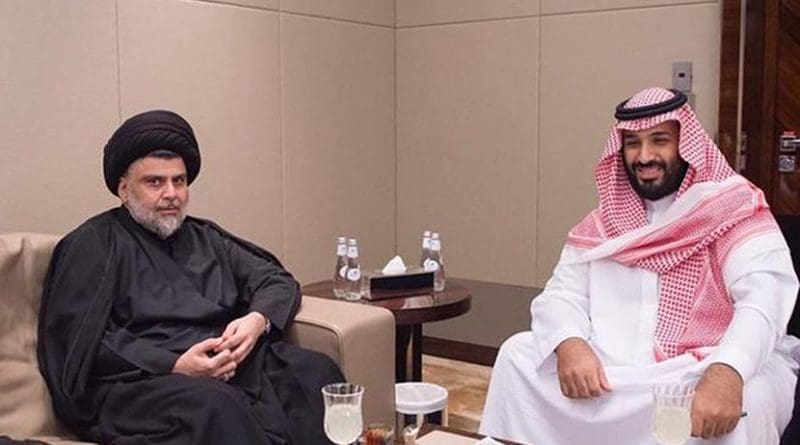Iraqi Shia Cleric Moqtada Al-Sadr Visits UAE And Saudi Arabia
Iraqi Shia cleric and politician Moqtada al-Sadr has been reported visiting the UAE and Saudi Arabia on diplomatic visits, securing a $10 million deal with Saudi Arabia for establishing a consulate in Najaf. Amid the ongoing crackdown on the Shia minority in Saudi Arabia this may have come as a somewhat intriguing choice of alliance.
Who is Moqtada al-Sadr?
Despite the fact that he does not hold any official title in the Iraqi government, Moqtada al-Sadr is one of the most influential religious and popular figures in Iraq.
Born into a very well-known Shia family, his father, Mohammed Sadeq al-Sadr was a respected figure in the Shia Islamic world, but was allegedly murdered by Saddam Hussein’s government.
Moqtada rose in popularity following the end of the Saddam’s regime following the 2003 invasion of Iraq, and gained status among many Iraqis as a symbol of resistance to foreign occupation. This was partly due to his position as leader of the political ‘Sadrist Movement’ party, as well as its military wing the Jaysh al-Mahdi, who were violent opponents of the US and coalition forces presence in the country.
Al-Sadr’s role grew in prominence as the war continued, with his repeated calling for the departure of US, coalition and UN foreign forces from Iraq. By late 2011, just it looked like the US would largely withdraw from Iraq, Sadr established a base for himself in Najaf after reportedly having sought refuge in neighbouring Iran for fears over his safety.
Post US withdrawal
Following US withdrawal from Iraq, Sadr continued to grow in political influence, associated largely with the Al-Ahrar bloc.
However this period did signify a significant change of direction for him from a reputation of advocating violence to presenting himself as a moderate, striving to achieve peace in the country.
The storming of the parliament
Despite formally withdrawing from politics in 2014 in order to protect his family’s reputation, in 2016 Sadr delivered a powerful speech leading protesters to storm the fortified Green Zone in Baghdad, an area housing the parliament buildings shortly after politicians failed to approve new ministers.
“Raise your voice and shout so the corrupt get scared of you” he declared.
It became evident for all at this point that Sadr had transformed from a man little known outside of religious circles to a widely supported nationalist political leader, fighting against corruption and pushing government reform in Iraq.
Syria
Sadr’s stance on Syria also differs widely with other Iraqi Shiite leaders, as back in April of this year he called for Syrian President Bashar al-Assad to step down in order to save the country from further bloodshed.
It is this move also that really separated his position from that of Iran, who have been backing Assad in the conflict, and may have provided a space in which gulf countries such as Saudi Arabia and the UAE to approach the Shia cleric.
Whether they seek to use his influence as a mediation tool with Iran, or to create divisions within the different Shia factions is yet to be seen.

